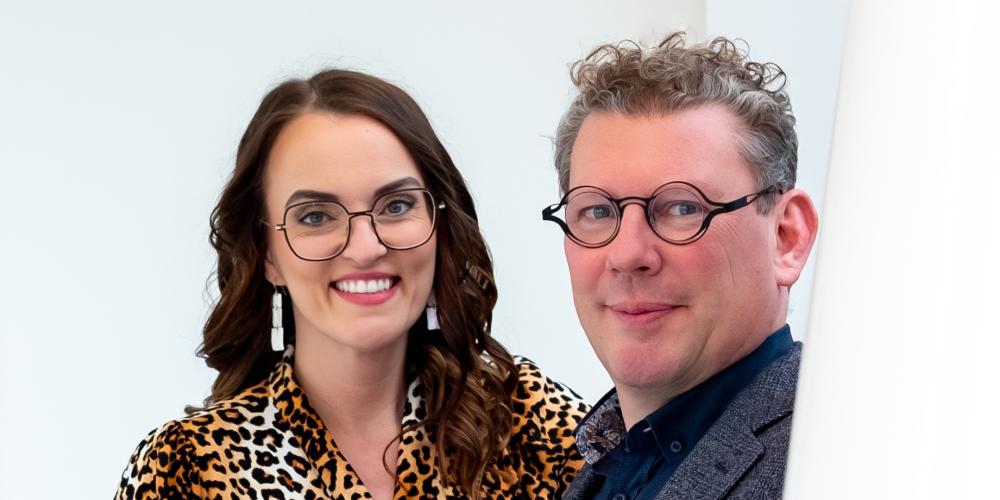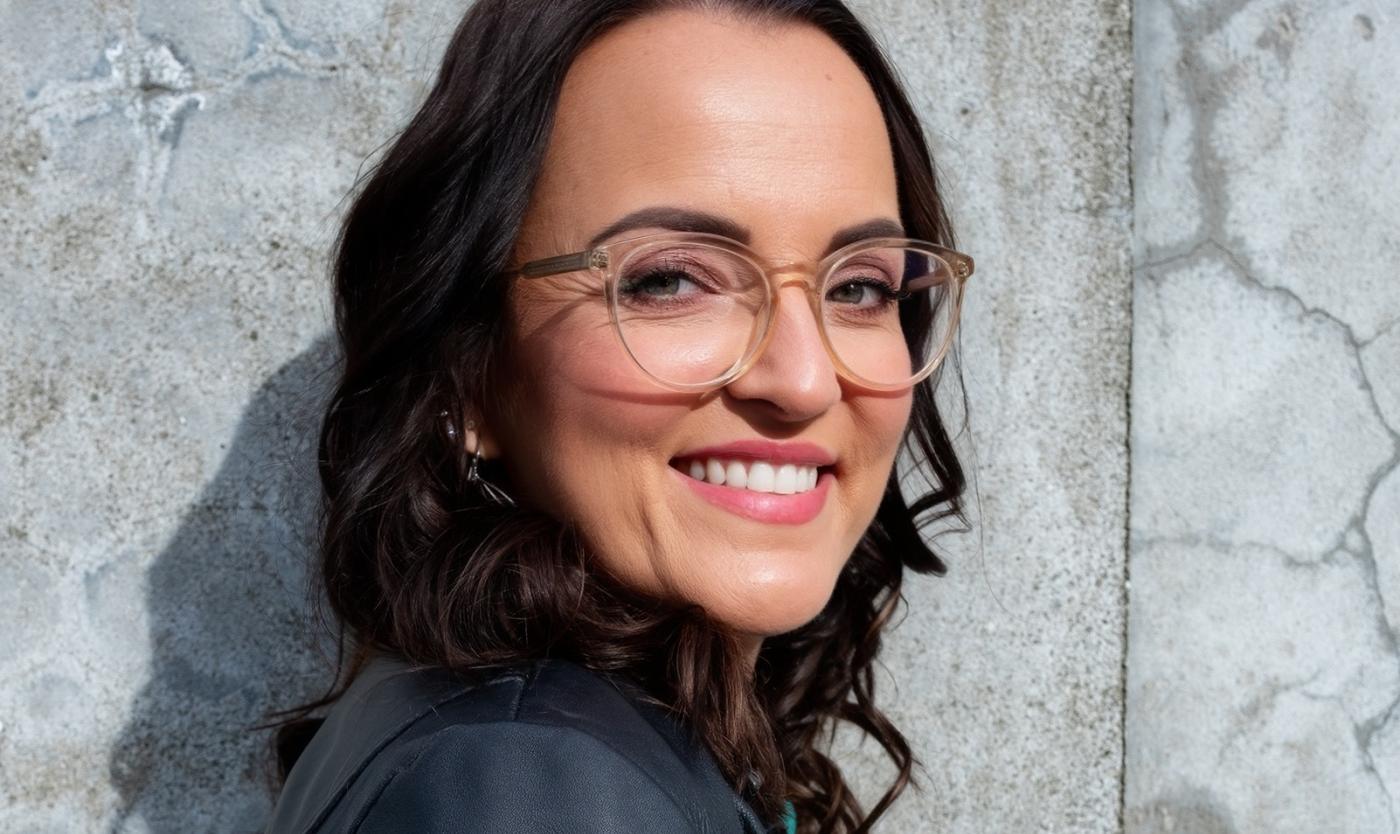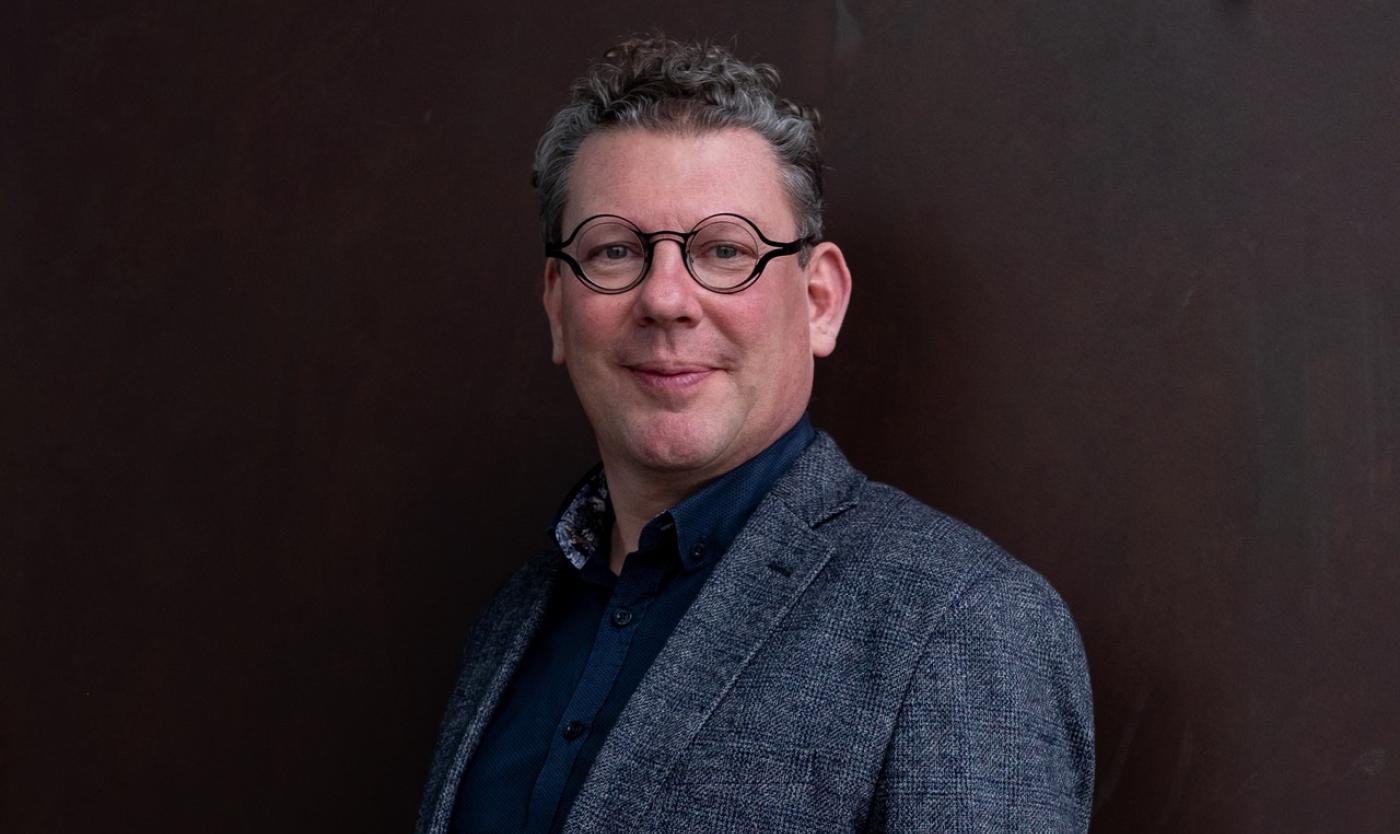
One in five people will receive this shocking diagnosis at some point in their lives: dementia. By 2070, this figure is expected to double again as we continue to live longer. This is frightening, because the disease seems irreversible. But VUB professor of neurology Sebastiaan Engelborghs and journalist Barbara Ceuleers offer hope. Together, they wrote the book Vergeet dementie (Forget Dementia). "Almost half of future cases can be delayed or even prevented."
Here you can register for the book presentation on 16 September in Mechelen (in Dutch).
In a nutshell: why did you feel this story needed to be written?
Sebastiaan Engelborghs: "Our risk of dementia is exceptionally high. One in five. But 45 per cent of these cases can be delayed or avoided simply by influencing 14 risk factors. That's technical, but also hopeful.
Every year, I go on a writers' retreat to write scientific articles and research projects. Last October, I was in Ostend and came up with the idea of writing a book about dementia prevention and how people can get involved themselves. Around the turn of the year, Barbara called me. I know her because I was her father's (Jan Ceuleers, former VRT boss) treating neurologist. Apparently, she had exactly the same plan.
Barbara Ceuleers: "Both my father and my grandmother had Alzheimer's. He ultimately chose euthanasia so that he would not deteriorate due to the disease. I wrote about this last year in the book “Doodgewoon” (Perfectly Normal).
It struck me that everyone thinks there is nothing you can do about dementia. Now it turns out that this is not the case at all. It is certainly not meant to be reproachful, as in “damn it, Dad, if you had lived less extravagantly, you might still be here”. It's more because I'm 42 myself and want to take the risk factors into account. You can tackle them “now” to prevent developing Alzheimer's later on. That was an eye-opener for me."
You talk about 14 risk factors that we can work on ourselves to influence our risk of dementia. Which are the most important?
Engelborghs: "High blood pressure, insufficient exercise, air pollution... We hear about them regularly, but rarely link them to our brain. Yet our brain lives with them every day, and they are all factors that influence our risk of dementia. Did you know that even hearing loss is responsible for almost seven per cent of dementia cases? The Lancet Commission, an international team of dementia experts, has mapped out all these risk factors.
We at VUB have also been working on this for many years. For example, we recently joined the WW FINGERS consortium, a global consortium that investigates how we can prevent or delay dementia in older people through a multidisciplinary and multidomain approach that addresses nutrition, physical activity, mental stimulation, social activities and risk factors for cardiovascular disease. UZ Brussel wants to be the first Belgian hospital to start this soon."

Barbara Ceuleers © An Clapdorp/Ertsberg
‘Even a slight hearing loss in middle age can lead to dementia.’
Barbara, the book also recounts your personal experiences.
Ceuleers: "Before my father was diagnosed, Alzheimer's disease and dementia were something that didn't concern me. I had seen it in my grandmother, but at the time I thought, 'She's an old lady, they all get it.' One of the first things the professor said to me was: “There's no such thing as senile dementia, because dementia is not a normal part of ageing.” It hit me like a bolt from the blue. Don't we all get it? It turns out that with minimal changes to your lifestyle, you can drastically reduce your risk of dementia."
Practice what you preach. In the book, you also take a close look at your own lives.
Engelborghs: "That's right. I'm a foodie, a wine lover, so my weight had increased over time. When I started at the VUB in 2019, all professors received an email from the Faculty of Physical Education and Physiotherapy asking if final-year students could contact us for a project to improve our lifestyle. Why not, I thought. The student in question, Skander Ouni, came by and advised me, among other things, to cycle from Antwerp to Jette. During the pandemic, I bought a speed pedelec, which I use to cycle to the VUB two or three times a week. Not only have I lost weight, I also eat healthier and feel fitter. By turning one knob – in my case, extra exercise – you also influence other risk factors, including the risk of dementia."
Ceuleers: "I have applied all the risk factors to my life. For example, I had my ears tested. Because even a slight hearing loss in middle age – which is a nasty term, by the way – can lead to dementia in later life. I have also learned that lifelong learning – something that is not available to everyone – can also prevent the development of dementia. We don't all have to go to university to achieve this. Learning a new sport or hobby, keeping up with current events... there are many possibilities, as long as we continue to challenge our brains."

The 14 factors that influence dementia
To date, science has discovered the following elements that play a role in dementia. Some of these can be influenced, others cannot. These are:
Bad cholesterol, high blood pressure, lower education level, hearing loss, poor eyesight, smoking, obesity, depression, insufficient exercise, diabetes, high alcohol consumption, head trauma, air pollution and social isolation.
Are people sufficiently aware that they themselves can make a difference?
Engelborghs: "Absolutely not. Some risk factors cannot be changed: your age, your genes, your past. But many other factors can. People often come to us for consultations with questions about their own risk of dementia. 'My father or mother had dementia, what is my own risk?' Actually, these people don't belong at such a consultation; we can't really help them at that moment.
What could make a difference is a Brain Health Centre, linked to the memory clinic, where people can go with such questions about their risk of dementia. Where there is time and space to explain those 14 risk factors and how they can be translated into their lives. UZ Brussels is not the only party asking for this. We are rolling this out step by step together with five other European memory clinics. We are learning from each other. Because drawing up a risk profile is not easy. Nor is communicating it. We want to handle this very carefully."

Sebastiaan Engelborghs © An Clapdorp/Ertsberg
‘You are never too young or too old to take a close look at your life’
What role do you think the government should play?
Engelborghs: ‘The government could focus more on prevention, starting in schools. Also, our healthcare system reimburses treatment for illnesses, but not preventive measures. A consultation to identify the 14 risk factors is not reimbursed. I see an important role for the government here.’
Ceuleers: "For the book, we also interviewed the people behind “Stop Darmkanker” (Stop Bowel Cancer). It's a perfect example of how it can be done: raising awareness through a highly targeted campaign, supported by the government. Prevention is important, because I don't think we will be able to bear the costs of the additional cases of dementia in 2050. The healthcare system is already overburdened and understaffed, so let's focus on prevention."
Finally, what is the biggest misconception about dementia?
Engelborghs: ‘That it is inevitable. That you are genetically pre-programmed to develop dementia. Our book addresses this. As a wake-up call, but even more so as a practical guide. Without trying to make people feel guilty. Under the motto: you are never too young or too old to take a close look at your life.’
Ceuleers: ‘That solving a Sudoku puzzle every day is enough to prevent dementia. Not so. Your brain gets used to it. What does work is to keep surprising and challenging your brain in whatever way you can.’
ID
Sebastiaan Engelborghs (born 1970) is a full professor of neurology at the Vrije Universiteit Brussel and head of the neurology department at UZ Brussel. He specialises in neurodegenerative disorders such as Alzheimer's and frontotemporal dementia. Engelborghs combines clinical care with leading research into biomarkers and the prevention of dementia. He heads the NEUR research group and the Centre for Neurosciences (C4N) at the VUB.
ID
Barbara Ceuleers (born 1983) is a Germanist and journalist at VTM News. She wrote the book “Doodgewoon. Van Alzheimer tot Zelfbeschikking” (Perfectly Normal: From Alzheimer's to Self-Determination), inspired by her experiences with her father, who suffered from dementia. In the book, she advocates for more openness and freedom of choice around end-of-life care. His decline confronted her with the emotional and ethical dilemmas that many families silently endure.